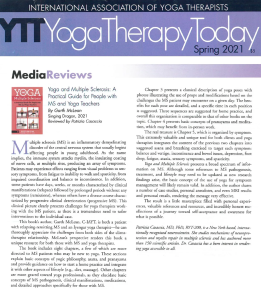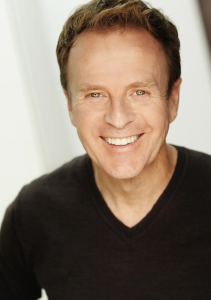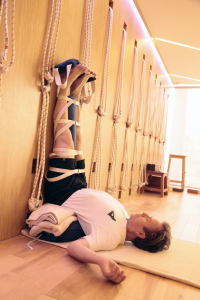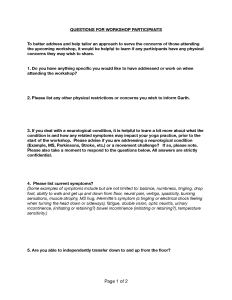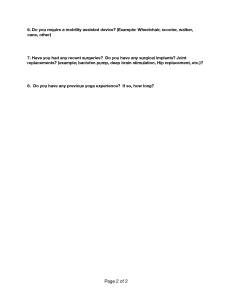Workshop with Garth Mclean
Dear members of Biyab, Yoga practitioners, teachers,
We are very happy to announce the workshop of Garth Mclean on Friday 4, Saturday 5 and Sunday 6 April 2025.
Schedule:
Friday & Saturday: 10am-12.30pm and 2pm-4.30pm
Sunday: 9am-12pm and 1pm-3pm
Location: at the Brussels Free University (ULB) - Avenue Buyl 87 A - 1050 Brussels.
Garth is a Senior Iyengar Yoga teacher, involved in the work of Anuyoga and an expert in MS and neurological condition.
Before register, please send us the form bellow named: "Questions for worshop participants", completed if you have any neurological issues you would like to focus on. Contact: contact@iyengaryoga.be
You can already register here!
Video on Youtube:
Attached a review on his book about Iyengar Yoga for MS.
His website: https://yogarth.com/
About his workshops he sais:
"Generally, I offer a weekend workshop with focus on balancing and enhancing function of the
nervous system through Iyengar Yoga, whether a general workshop or a remedial offering.
In the spirit of inclusion and to further share the benefits of Iyengar Yoga…incorporating why, how, when and ways to adapt…the workshop is in-studio only for persons to participate at whatever level they have comfort.
By providing yoga support for participants with conditions that may be associated with central
nervous system challenges (Multiple Sclerosis, Parkinson’s, Post-Stroke, Motor Neuron Disease (ALS), Long Covid, and more), over the course of the weekend, I present how Iyengar Yoga can be ideally suited for persons with these types of conditions to enhance mobility and function, while addressing and any condition specific symptoms.
At this point, the workshop is In-Person Only.
The classes I offer explore the various sthitis or categories of asana that can be of benefit for
those with these types of challenges. Generally I start the weekend with a brief overview of the nervous system, and introduce what to take into consideration when approaching yoga when dealing with a movement restriction or neurological challenge. This can be beneficial for both students and teachers. This is usually followed by a general restorative, or pranayama session on Friday afternoon/evening. Also included in the first day, I outline some basic information on whatever neurological or movement conditions we may be addressing over the course of the weekend, if we choose to look at that. I offer my insight on basic principles to keep in mind and any contra-indications when addressing these types of conditions. I have found offering something similar to this on Friday serves as baseline on which to build over the course of the weekend.
Saturday and/or Sunday can include specific adaptive sessions for people with any type of
neurological or movement challenge. This is further informed by my personal ongoing and applied lived experience of having managed my own course of multiple sclerosis through a daily practice of Iyengar yoga since 1996.
It is recommended that participants attend the entire weekend. All are welcome to attend at
whatever level of ability. If any people in wheelchairs are interested in attending, they are most welcome, however, they must be able and willing to transfer to another chair or the floor, with or without assistance. In past we have had persons both paraplegic or quadriplegic attend workshops, assisted by a personal dedicated assistant, in specifically noted adaptive class(es) offered over the course of the weekend. Depending on the number of people in wheelchairs who may be interested, I would suggest dedicating one session solely to that population and their teachers or care givers… However, often there are less than a handful of persons in wheelchairs who attend the group classes. They can be accommodated, if your studio is wheelchair accessible, and they have a qualified dedicated assistant to help.
Local Iyengar Yoga teachers are welcome to assist, as is a potential attendee’s regular care giver or assistant. We can determine the number of assistants and need once we have an idea of who and how many people are attending and with what degree of disability.
In addition to the more adaptive classes with neurological conditions, should we choose to offer general level (non-adaptive) intermediate classes, those general classes would be suited for ongoing practitioners who are not adversely affected by a serious nervous system condition or restricted by a movement challenge. These general level classes can be open to all. For clarity, general level classes can also be open to those with challenges, however, one must be independently ambulatory and able to self-transfer to and from the floor."
Best regards and hope to welcome you on this special event!
Eva Kamala Rodenburg, president of Biyab
Shai Kaplan, founder of Anuyoga



